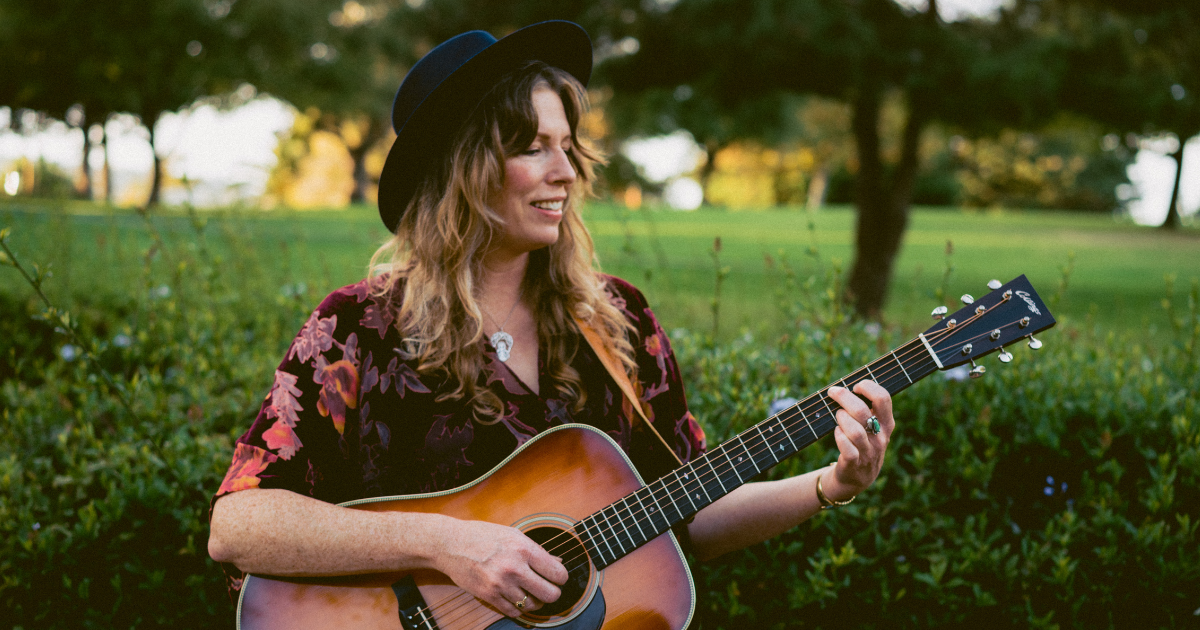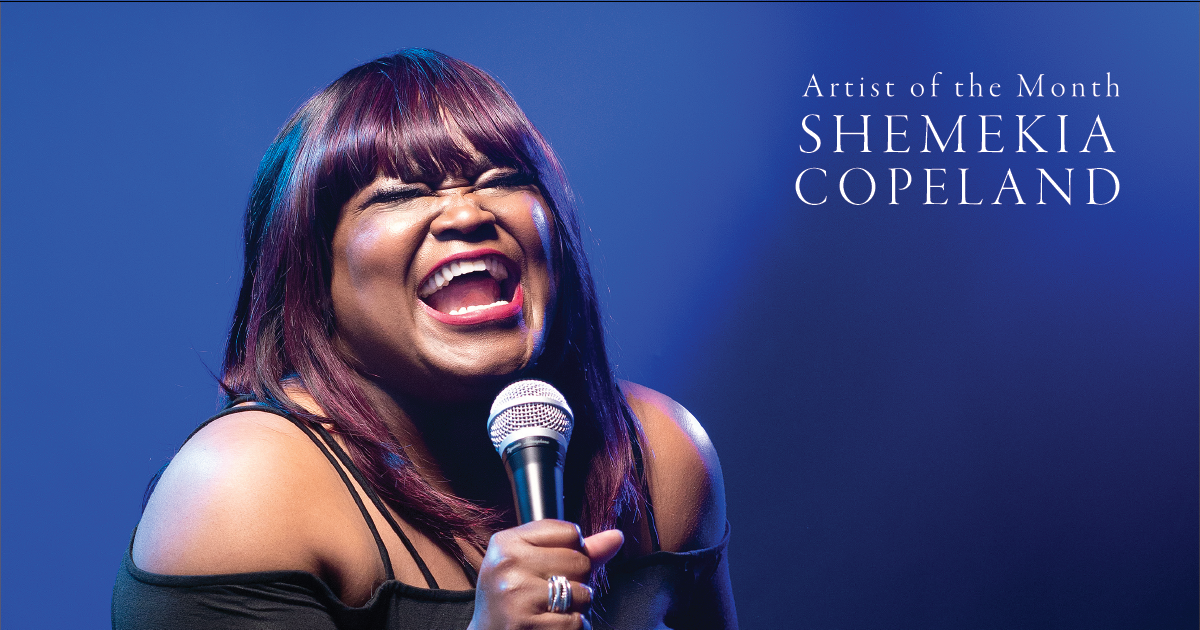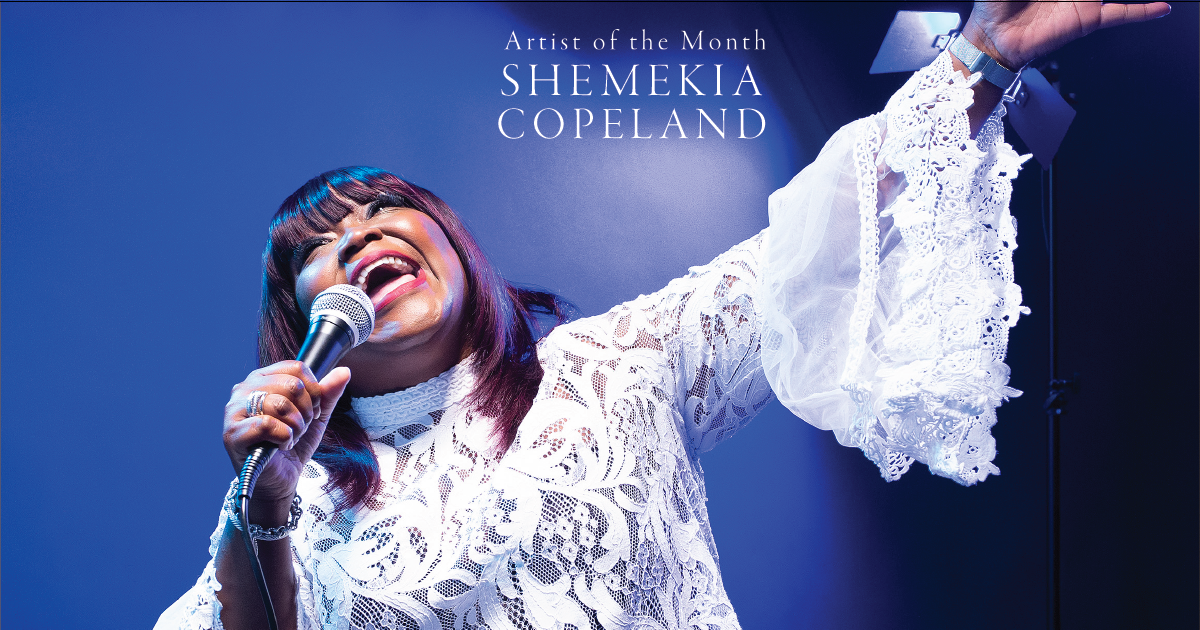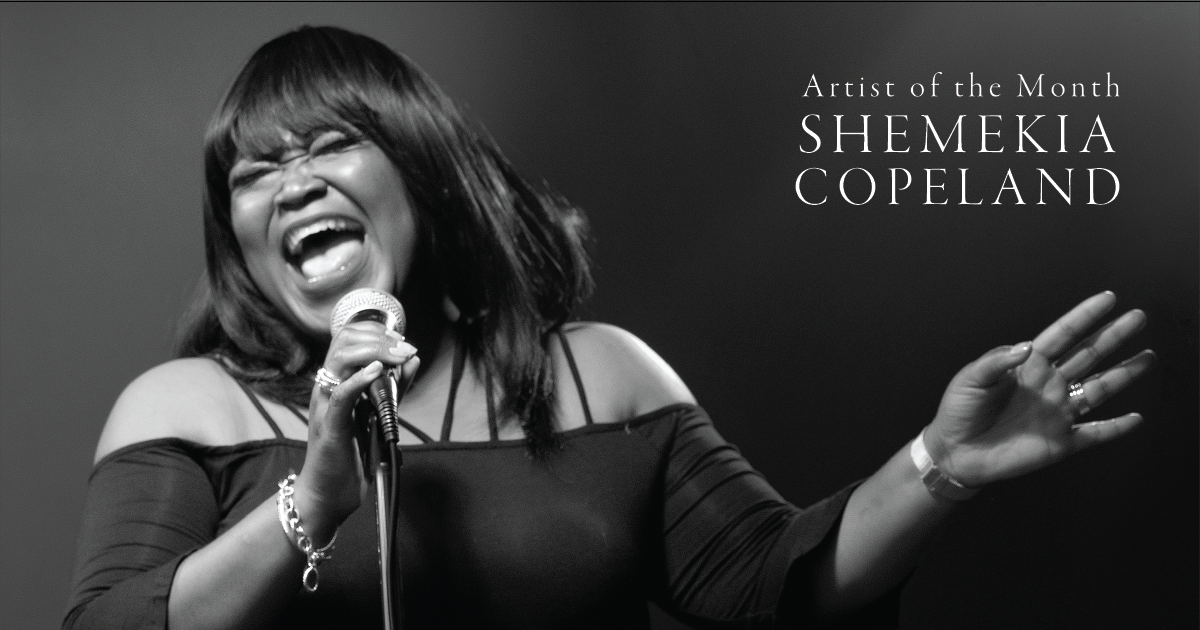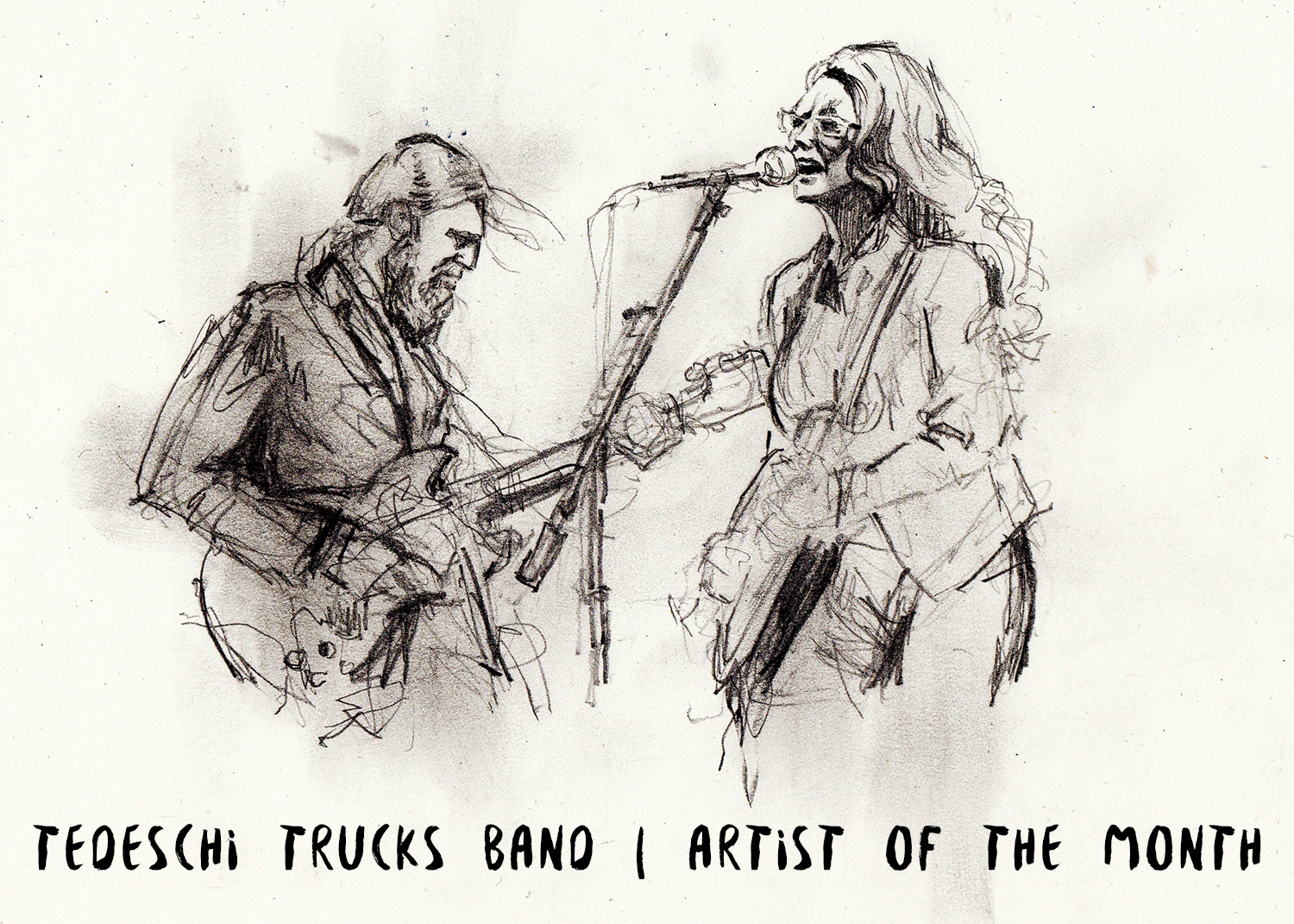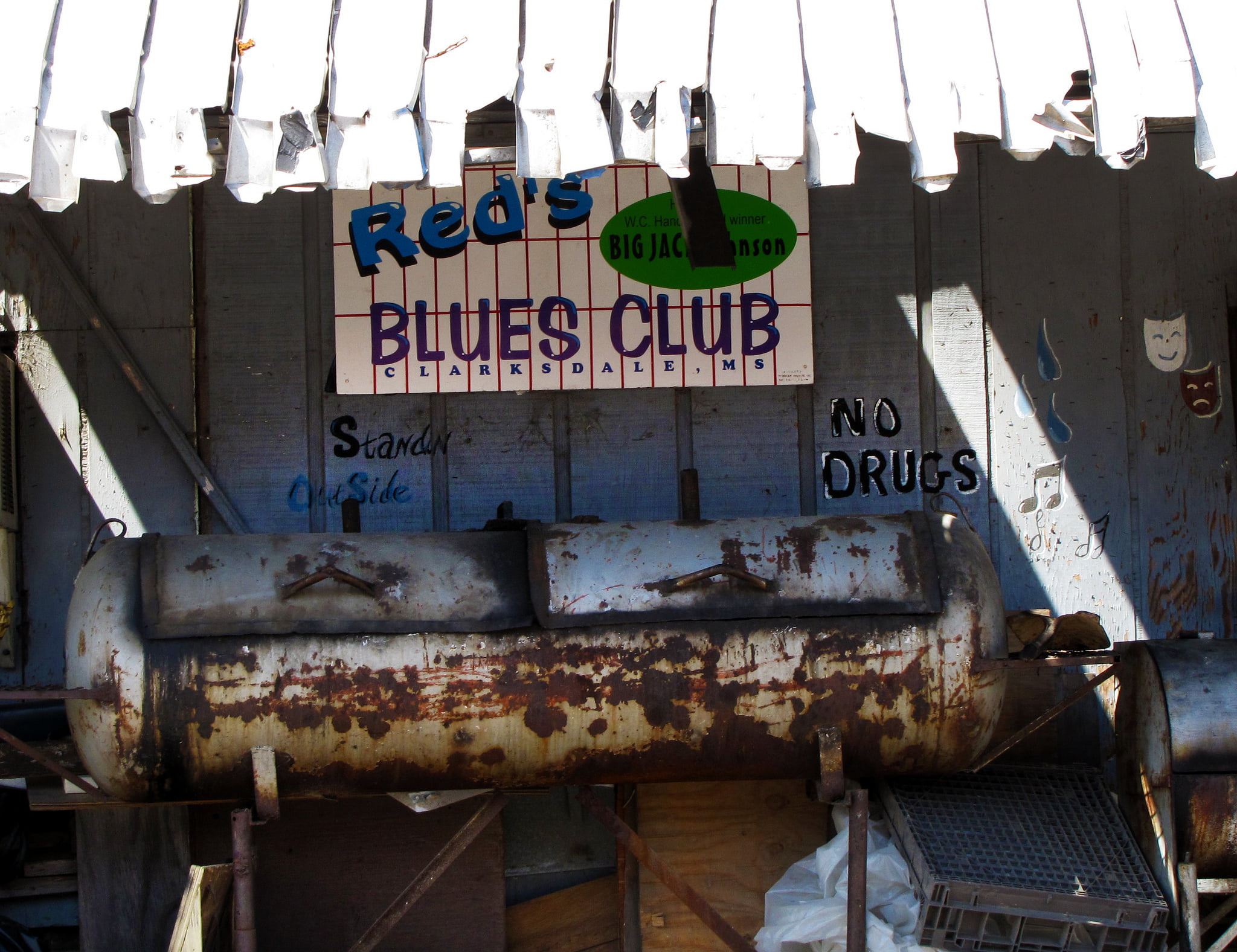At just 41 years old, Shemekia Copeland is already an established multi-decade blues veteran. That’s what happens when you start performing as a pre-teen with your blues legend father Johnny Clyde Copeland and make your recorded debut at 18. As one of the primary hosts on SiriusXM’s BB King’s Bluesville channel, she’s also one of the genre’s highest-profile artists. A recent series of albums have both underlined Copeland as a star of the blues and pushed her beyond the walls of the genre, further into Americana and socially conscious commentary.
Her latest, Uncivil War, is another bold step forward. Recorded in Nashville with producer Will Kimbrough, the album features a wide range of guest performers, including Jason Isbell, Christone “Kingfish” Ingram, Steve Cropper, Duane Eddy, Webb Wilder and bluegrass legends Sam Bush and Jerry Douglas. She pushes boundaries not just with the instrumentation but the topics she covers, including “Clotilda’s on Fire,” which tells the story of the last slave ship to come to the U.S., and the title track, “Uncivil War,” is a plea for healing in our increasingly divided nation.
“Americana was not on my radar, but I grew up listening to country music because my dad grew up in Texas and loved it,” Copeland tells BGS. “I’d walk around the house singing Patsy Cline and Hank Williams songs that my dad loved, but I hadn’t really even heard anything about the blend of country and roots music until a few years ago, so I think it’s kind of hilarious that people are saying I’m crossing over to Americana. But I welcome all listeners!”
Editor’s Note: Read the second half of our interview with Shemekia Copeland here.
BGS: Over the past few albums, you’ve really stretched out musically and part of that is working with a wide range of musicians, many from outside the blues world. Let’s talk about a few of them on the new record, starting with two bluegrass greats, Sam Bush and Jerry Douglas.
SC: Oh my gosh! They are just really talented guys who make anything better. I just love those guys! I think my favorite part about them is that they exemplify something I love about Nashville: nobody cares about genre. It’s all about just whether or not it’s a good song and whether they want to play on it. And that’s it.
You think that’s notably different than other places? Do you find that not to be the case in New York or Chicago, for instance?
I have to say yes to that. I think it’s different in Nashville. People just want to play music. Down there, nobody ever even asks, “How much does it pay?” They’re just like, “What time do I need to show up?” It’s really about the music and Will Kimbrough, who produced the last two records, knows everyone in town and has played with most of them.
Jason Isbell is another great guest on this album and plays a great solo on “Clotilda’s on Fire.”
Yes, that one was a little different. We did a show at the Grand Ole Opry together, so Jason knew who I was when Will called and asked him to play on this song, and he was ready to do it. “Clotilda’s on Fire” is about the slave ship that they found off the coast of Alabama, and he’s from Alabama and we wanted him to play lead guitar on it. It just felt natural. It’s amazing how organically these things happen.
That song is really powerful and it’s just one of several very topical tunes on this record. That’s something different that you’ve really established. The first four songs are not about personal things like heartbreak, but heavy topics addressed in interesting ways. You have “Clotilda’s on Fire,” about the last slave ship; “Walk Until I Ride,” a modern-day Civil Rights anthem; and “Uncivil War” and “Money Makes You Ugly,” whose titles speak for themselves. Did you make a very conscious decision to do this?
Absolutely! I’ve been doing it for several records now. And I think the more confident I get, the better I get at it, and the more comfortable I get with saying what’s on my mind. Like on America’s Child, I did “Would You Take My Blood?” which was the first time I ever tackled a song about racism. On previous records, I did songs about domestic violence, date rape, things like that. But it feels more imperative than ever with everything that’s going on in this country now — and this was before COVID-19. This record was finished when all of this crap happened.
I was struck by the story about the Clotilda ever since the ship was found off the coast of Alabama. My ancestors came over here on one of those ships. I did my DNA and I’m 87 percent African, so I was very interested in that story. I wanted people to know about it and, more importantly, to understand why it still matters so much. The line in that song that’s one of the most important to me is “We’re still living with her ghost.” I want people to know that it hasn’t ended, that we’re still going through the same stuff and it’s very, very saddening. Heartbreaking, really.
Have you had any backlash to being more outspoken?
Oh, of course.
Do you care?
Not at all. You can’t satisfy everyone. The one thing that I’ve learned in my career is you’re going to piss somebody off. Not everybody’s gonna be happy with you. It’s just that simple, and it’s okay. Nobody wants their difficult history dredged up and put out in front of their face, but I’m good as long as I can look at myself in the mirror every day and be happy with myself.
Amidst all the great new original songs is a cool cover of The Rolling Stones’ “Under My Thumb.” How did you choose that one?
Doing that song was, for me, turning the tables on men. In fact, I actually hate it as a Stones song. I don’t want a man talking about a woman in that way — but it’s a great song! I don’t want to think of a woman being under anyone’s thumb, so the tables were turned… but one critic listened to it and said, “She’s talking about Black women being oppressed in this country.” I thought, “They’re making me sound so smart!” Same thing with “No Heart at All,” which a lot of people have read a lot into and interpreted as being about the president. Okay, but that goes for anyone who doesn’t have one.
That’s interesting about “Under My Thumb.” There’s a power to a woman flipping a song as Aretha did with Otis Redding’s “Respect.” That’s a completely different song sung from a woman’s perspective.
Yeah, to me, a guy singing that is just not right. Doesn’t work. Like, I couldn’t do some standard songs, as much as I love them. I would never want to sing things like “I’d Rather Go Blind” because, shit, I don’t want to go blind. You want to go? Get to steppin’! I don’t need you here. You know what I mean? It’s like this great love song but it leaves me saying, screw that. Peace out.
And you’d never think of Etta James as a pushover in any way! You were close with Koko Taylor, who turned some songs around as well.
She did! “I’m a Woman” was her turning the tables on men. I was devastated when we lost her [in 2009] because she always checked on me. She was so worried about me being in this business because of what she went through with her musicians and managers. Meanwhile, I’m out on the road with all these square guys that only drink herbal tea and don’t even smoke cigarettes. This was not her experience at all! I don’t think that she realized that it was just a different time. She had managers stealing money and disappearing into crack dens. She went through some stuff and wanted to make sure that I could avoid them.

You have a very interesting relationship with your manager, John Hahn, who is also your primary songwriter. How did that develop?
I met John when I was 8 years old. When my friends came around, I’d say, “This is Mr. John Hahn and he’s my manager.” Really, he was working with my father and I was just a little kid talking shit. But when I was about 12, he wrote me a song called “Daddy’s Little Girl” for fun. I started to go sit in with my dad. Now fast forward 33 years or so, and John and I talk every day on the phone, about everything. Having someone who knows me so well write songs is like having a tailor make you a suit. These songs are tailor-made to me, and I’m very fortunate to have that.
Your father was a great songwriter who wrote simple but profound lyrics that really resonated with me. Obviously you agree because almost every album you do one of his tunes, this time “Love Song.”
Yes, thank you! People have suggested I could do a whole record of my daddy’s songs, but this is my subtle way of doing it. I’ve already done ten of them. And, I got to tell you, I do believe that my little boy Johnny is my father reincarnated. He acts just like him. He’s three-and-a-half years old, and is so damn sure of himself. This kid knows who he is. He is arrogant in his confidence, and I always felt my father to be that way. Kind and sweet, but definitely sure of himself. You couldn’t tell him who he was, because he knew. And this little boy is all that and a bag of chips. By the way, my dad knew that I was going to be a singer the second that I came out of the womb.
That’s amazing. How?
I don’t know, but he told my mother when she was holding me in her arms, “She’s going to be a singer.”
And you always feel that way?
No! I did not have the confidence to be a singer. I never wanted to be in front of people. Audiences scared me. I’d always ask my dad how he could get up there in front of all those people and perform. That was always a problem for me.
But you did it from such a young age. I saw you when you were about 12!
I did, but I never was comfortable with it. And it’s now my favorite part. The music business sucks, but performing in front of people is the most amazing feeling in the world. That didn’t come to me until I got older, and became more confident in myself. I had to grow up. Eventually I realized this is who I am.
When was that? You put out your first record at 19.
It’s gotten better over the years. You’re always a work in progress. I started out as a child, and a certain confidence comes in when you’ve been doing it a couple of decades! You never ever stop paying your dues, but I’ve now accepted me wholeheartedly.
(Editor’s Note: Read the second half of our interview with Shemekia Copeland here.)
Photo credit: Mike White
